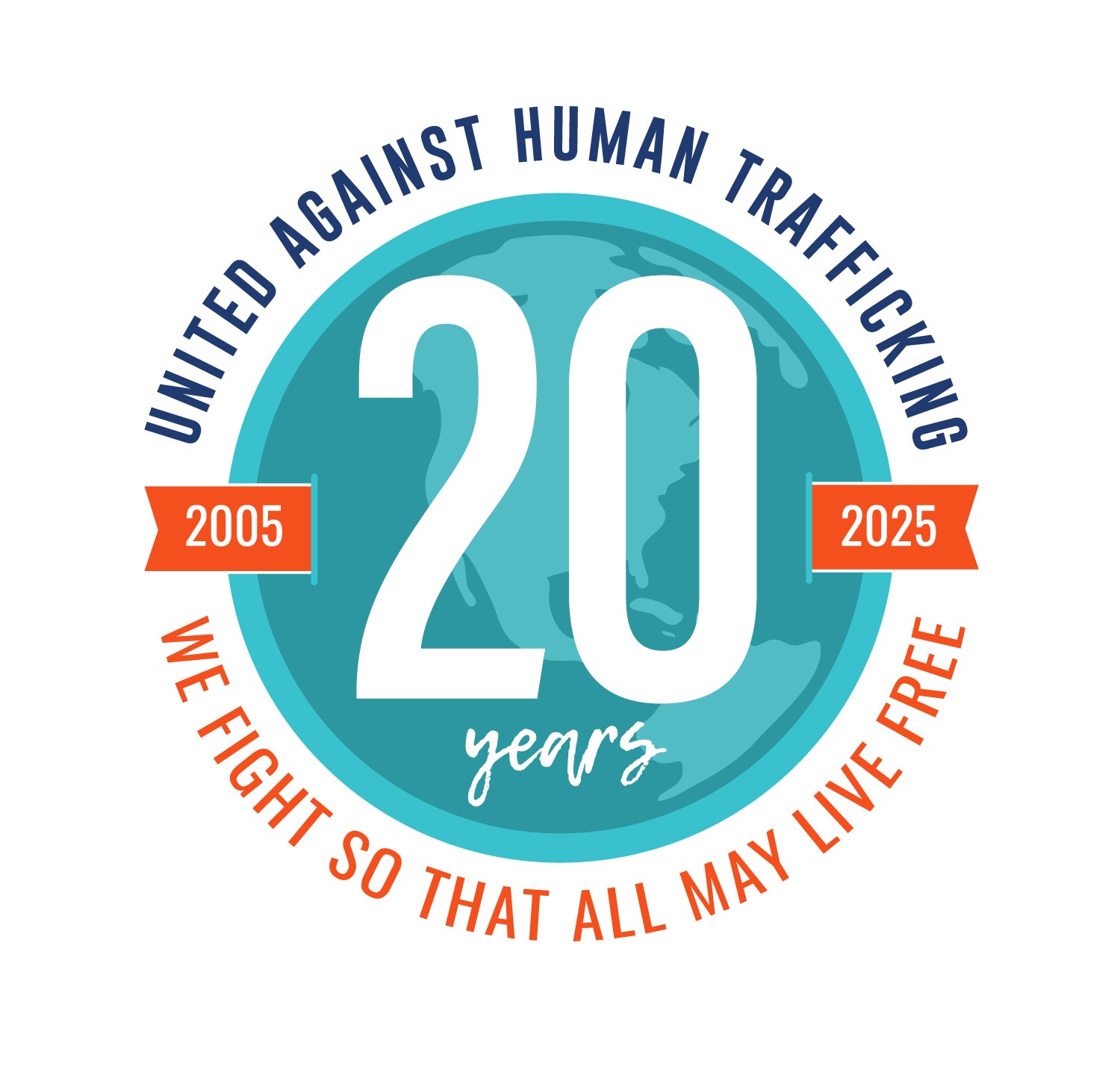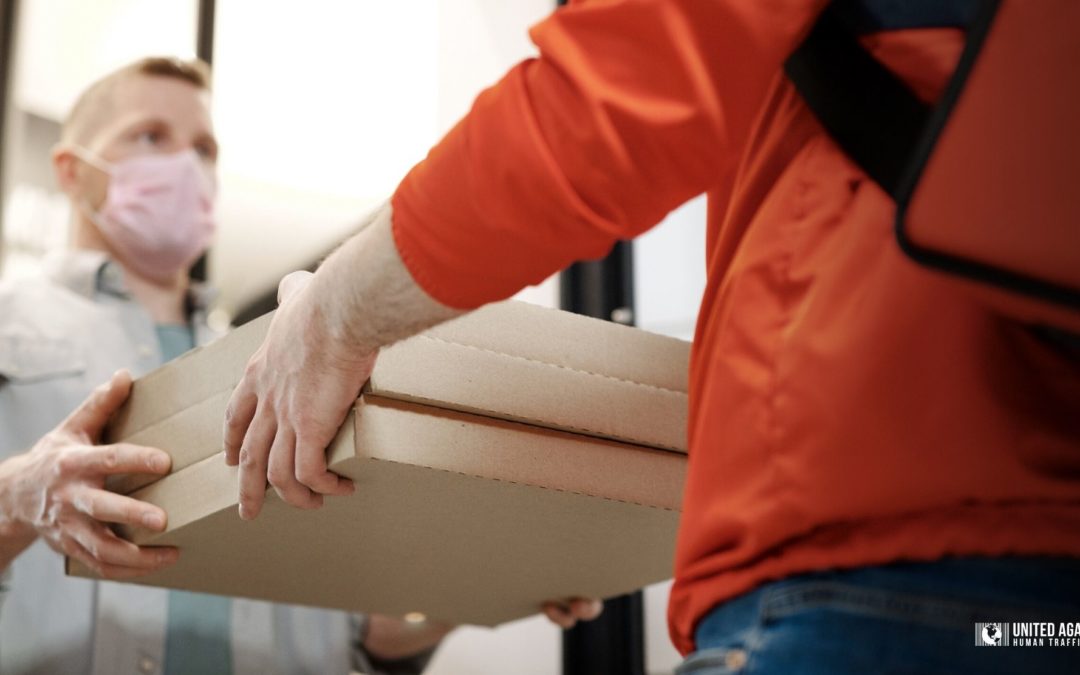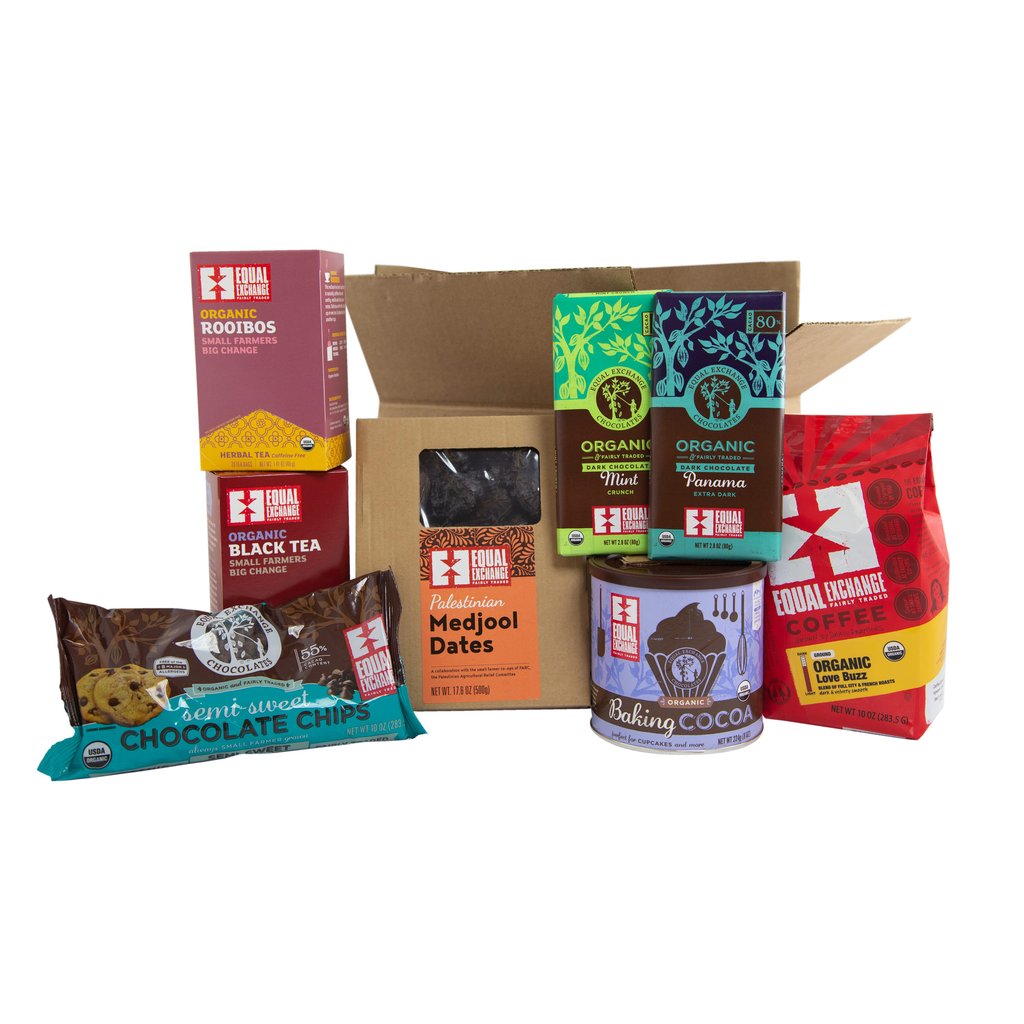
Everything You Need To Know About Labor Trafficking
When we hear the term “human trafficking,” most of us immediately think of sex trafficking. In reality, labor trafficking is more prevalent than sex trafficking both locally and globally. Here’s everything you need to know about labor trafficking:
The Numbers: Sex Trafficking vs. Labor Trafficking
The International Labor Organization (ILO) in partnership with Walk Free Foundation in 2017 estimated that 4.8 million people are victims of sex trafficking worldwide.
But as large and devastating as that number is, sex trafficking only represents a small portion of the global human trafficking problem.
There are 20.1 million people worldwide who are victims of labor trafficking.
16 million are exploited in the private sector – domestic work, agriculture, construction, etc. – while 4.1 million are exploited through state-imposed labor.
That makes labor trafficking more than FOUR TIMES as common as sex trafficking globally.
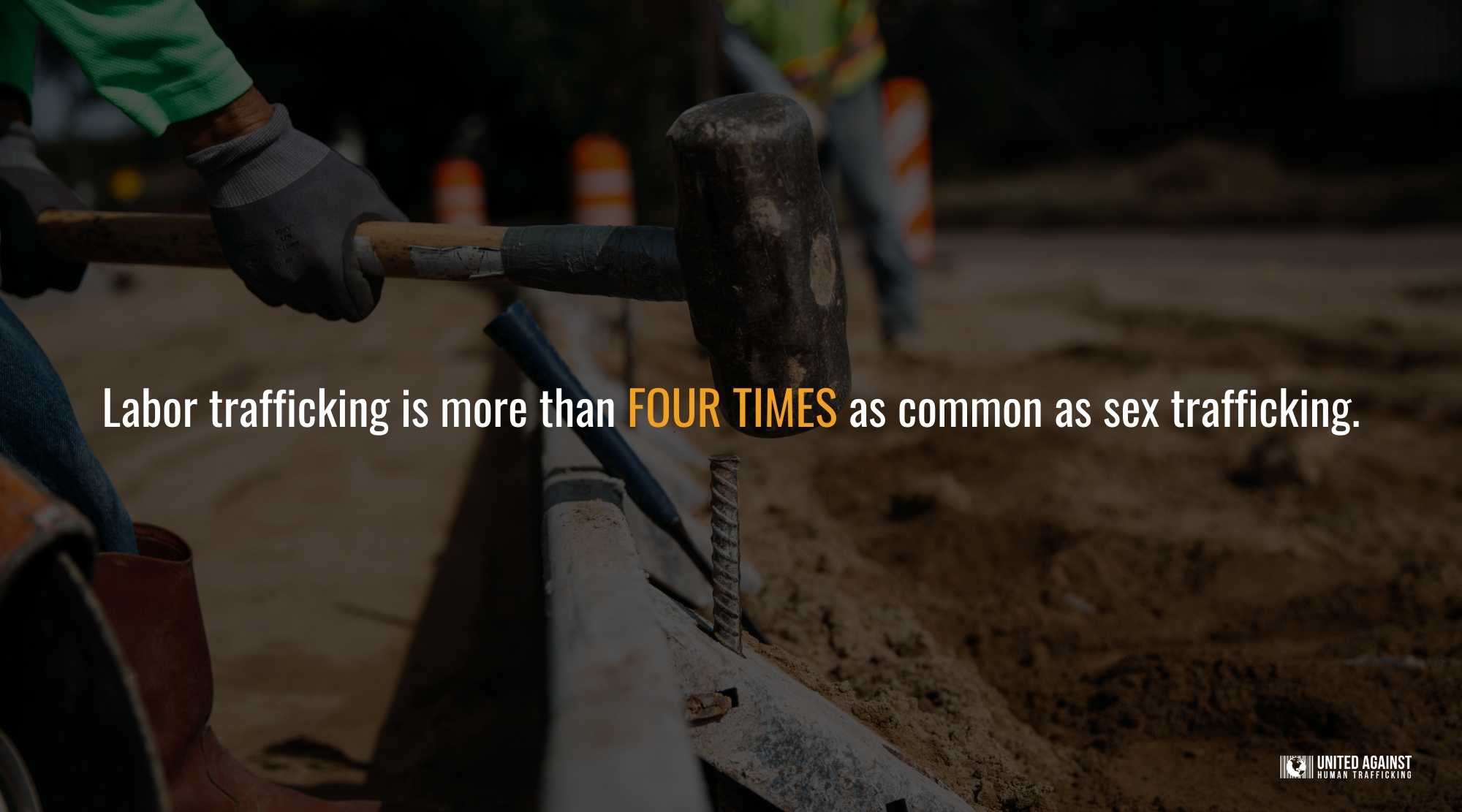
What is labor trafficking?
When somebody is compelled to work through force, fraud, or coercion, this is considered labor trafficking.
Force
“After working in the factory all day, the overseers locked us in our sleeping quarters so we couldn’t leave during the night.”
FRAUD
“Recruiters promised me certain wages when I agreed to the job, but then they took my visa and told me I had to work for much less than promised if I wanted it back.”
COERCION
“My boss told me if I tried to quit, they would hurt my children.”
Does labor trafficking happen in the United States?
In 2021, The National Human Trafficking Hotline identified 4,214 likely victims of labor trafficking – 3,583 victims of labor trafficking only and 631 victims of sex and labor trafficking.
This number of reported victims, however, barely scratches the surface of the problem.
The University of Texas at Austin in 2016 estimated that more than 300,000 adults are trafficked for labor in Texas alone each year.
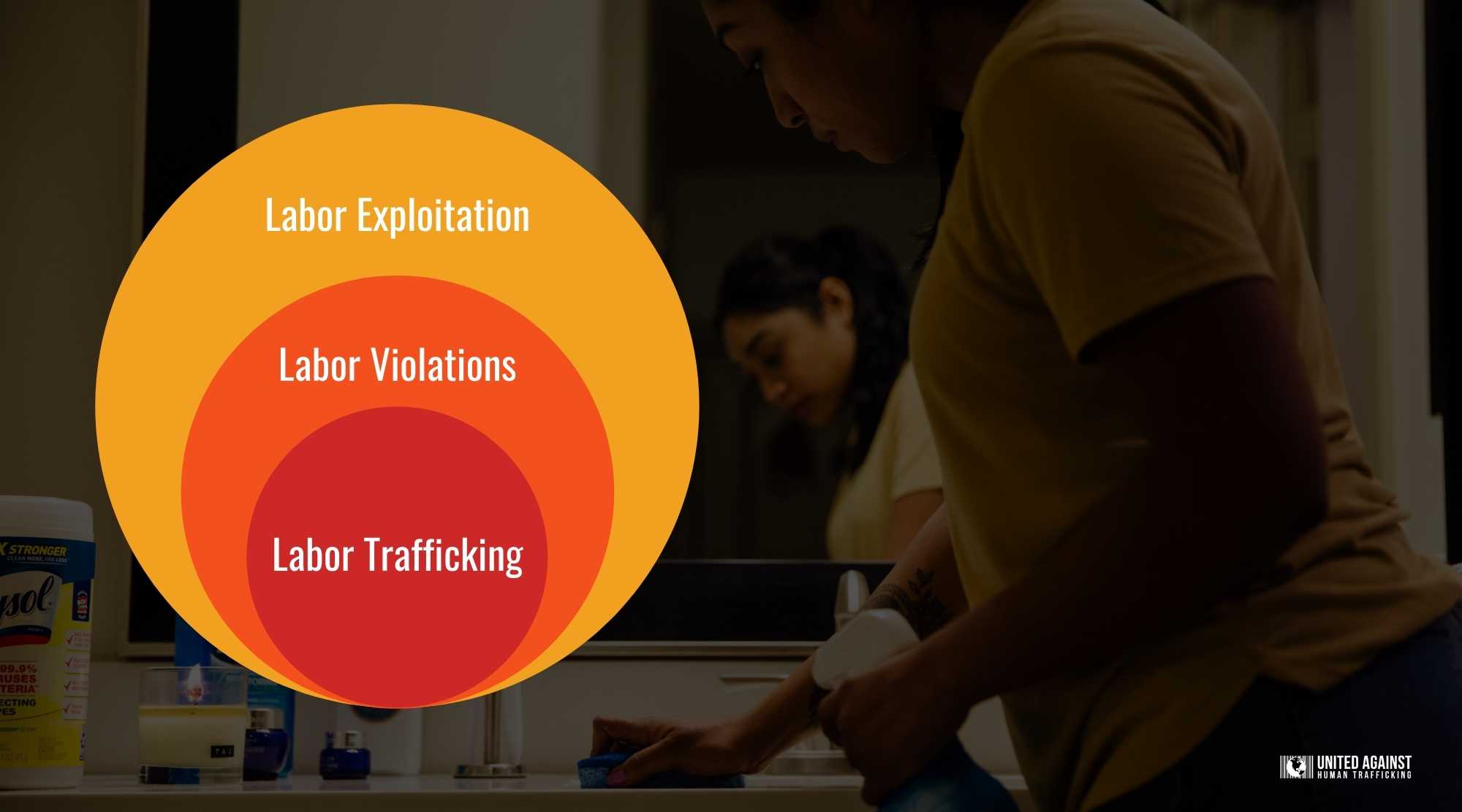
What are labor exploitation and labor violations?
How do they relate to labor trafficking?
‘Labor trafficking’ and ‘labor violations’ are legal terms with legal definitions, while ‘labor exploitation’ is not.
According to the Laboratory of to Combat Human Trafficking (LCHT), a labor violation is when “employers violate federal, state, or municipal laws related to worker treatment, workplace safety, or recordkeeping requirements.” Examples of labor violations include not paying overtime and/or paying below minimum wage.
Like the adage “a square is always a rectangle, but a rectangle is not always a square,” labor violations are always labor exploitation… but labor exploitation does not always equal labor violations.
Labor exploitation can also describe practices that are legal but considered morally/socially objectionable – such as paying workers low (but at least minimum) wages when workers assert their job deserves more compensation – while labor trafficking and labor violations are crimes by definition.
Remember: for an act to be considered labor trafficking, there must be elements of force, fraud, and/or coercion.
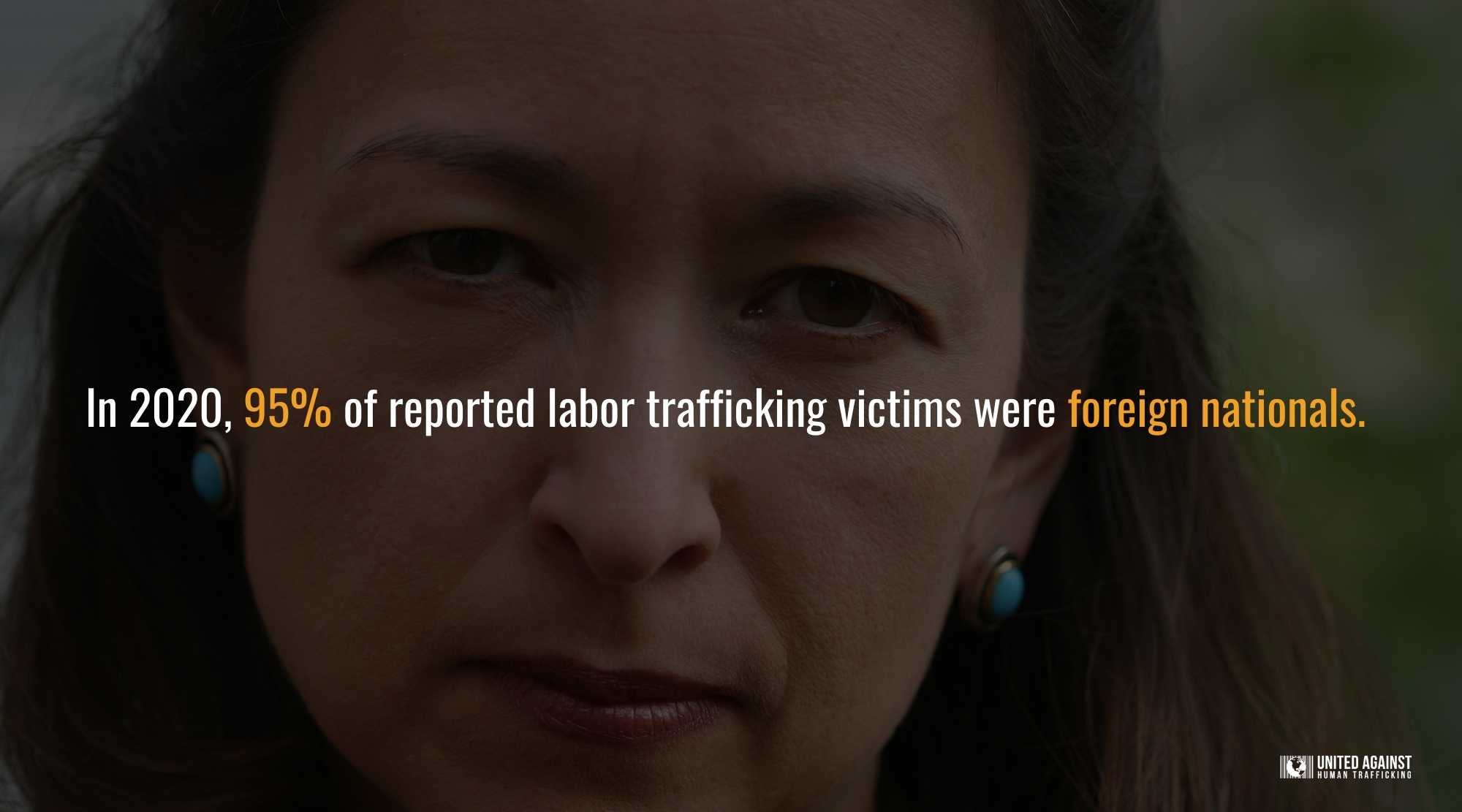
Who is at risk of becoming trafficked for labor?
In the United States, immigrants and refugees are highly vulnerable to labor trafficking.
In 2020, The National Human Trafficking Hotline identified 2,765 likely labor trafficking victims by immigration status: either domestic individuals (US citizens and legal permanent residents) or foreign nationals.
95% of these labor trafficking victims were foreign nationals.
Traffickers take advantage of new immigrants and refugees because they often do not know domestic labor laws. They also generally fear deportation, which gives a trafficker’s threats an even sharper edge and severely deters victims from speaking out.
In what industries does human trafficking occur most?
According to a 2014 report by the Urban Institute Justice Policy Center in collaboration with Northeastern University, the US industries with the highest rates of labor trafficking victimization are agriculture, hospitality, domestic work, and construction.
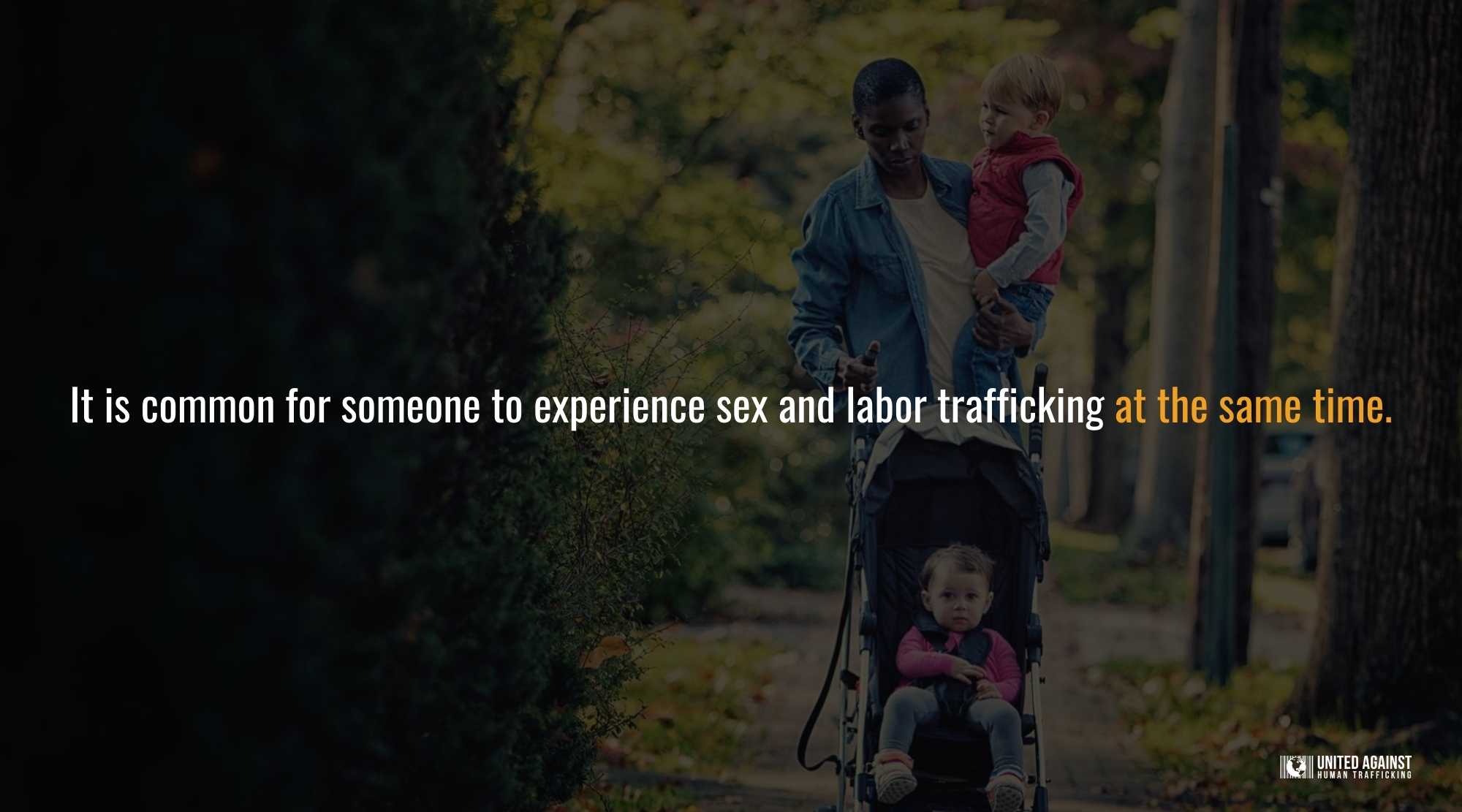
How do sex and labor trafficking intersect?
It is common for someone to experience sex and labor trafficking at the same time.
As mentioned previously, The National Human Trafficking Hotline identified 631 likely victims of sex and labor trafficking in 2020.
For example, an immigrant nanny could be defrauded out of their visa to make them compliant to their employer’s demands, while also being forced into having sex with their trafficker’s friends.
How can you fight labor trafficking?
If you suspect somebody is being trafficked, call the National Human Trafficking Hotline at (888) 3737-888.
If we suspect a person is being exploited for labor, we need to ask 2 questions to determine if it is human trafficking:
- How did the person come to have this job? (Were they recruited, harbored, transported, provided, obtained, patronized, or solicited into the job?)
- Was the person forced, defrauded, or coerced into taking or staying in the job?
If you answer “yes” to both those questions, it’s human trafficking.
Request a free education workshop – virtual or in-person – to learn more!
Shop Fair Trade
Lastly, it is virtually impossible to buy ONLY products that are ethically sourced and that can be guaranteed to have no labor trafficking occur during ANY part of the production process. This is a devastating fact of our modern world. This does not mean, however, that we should not try our best to consume responsibly when possible.
We can research companies and see what, if any, responsible sourcing/supply chain responsibility protocols they use. If they do not, we can demand they do so. We can shop fair trade if/when we can afford it. While these are small steps, they can help us feel like we have just a little more control over how the goods we buy get to our carts.
Check out Fair Trade Certified’s website to find ethically sourced products.
